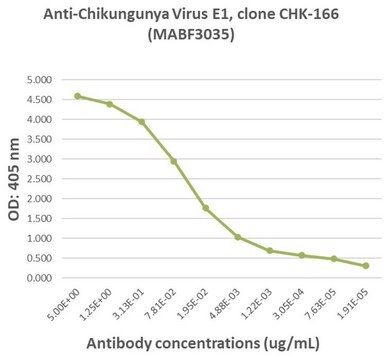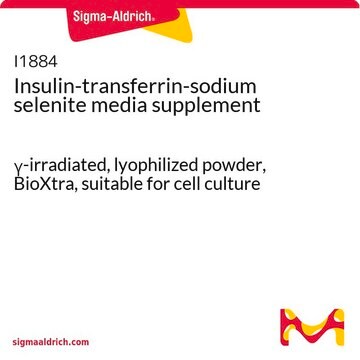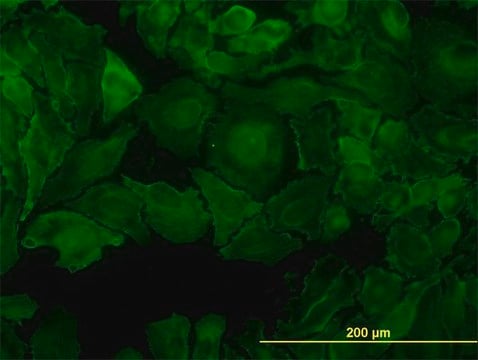MABS1923
Anti-PTK7 Antibody, clone 31G9
clone 31G9, from rat
Synonyme(s) :
Inactive tyrosine-protein kinase 7, Colon carcinoma kinase 4, CCK-4, Protein-tyrosine kinase 7, Pseudo tyrosine kinase receptor 7, Tyrosine-protein kinase-like 7
About This Item
Produits recommandés
Source biologique
rat
Niveau de qualité
Forme d'anticorps
purified immunoglobulin
Type de produit anticorps
primary antibodies
Clone
31G9, monoclonal
Espèces réactives
human, mouse
Conditionnement
antibody small pack of 25 μg
Technique(s)
flow cytometry: suitable
immunofluorescence: suitable
immunoprecipitation (IP): suitable
western blot: suitable
Isotype
IgG2aκ
Numéro d'accès NCBI
Numéro d'accès UniProt
Modification post-traductionnelle de la cible
unmodified
Informations sur le gène
human ... PTK7(5754)
Description générale
Spécificité
Immunogène
Application
Immunofluorescence Analysis: A representative lot detected PTK7 in Immunofluorescence applications (Martinez, S., et. al. (2015). J Biol Chem. 290(51):30562-72).
Immunoprecipitation Analysis: A representative lot immunoprecipitated PTK7 in HEK293 cell lysate. (Martinez, S., et. al. (2015). J Biol Chem. 290(51):30562-72).
Western Blotting Analysis: A representative lot detected PTK7 in Western Blotting applications (Martinez, S., et. al. (2015). J Biol Chem. 290(51):30562-72).
Signaling
Qualité
Flow Cytometry Analysis: 1 µg of this antibody detected PTK7 in one million NCI-H460 cells.
Description de la cible
Forme physique
Stockage et stabilité
Autres remarques
Clause de non-responsabilité
Vous ne trouvez pas le bon produit ?
Essayez notre Outil de sélection de produits.
Code de la classe de stockage
12 - Non Combustible Liquids
Classe de danger pour l'eau (WGK)
WGK 1
Certificats d'analyse (COA)
Recherchez un Certificats d'analyse (COA) en saisissant le numéro de lot du produit. Les numéros de lot figurent sur l'étiquette du produit après les mots "Lot" ou "Batch".
Déjà en possession de ce produit ?
Retrouvez la documentation relative aux produits que vous avez récemment achetés dans la Bibliothèque de documents.
Notre équipe de scientifiques dispose d'une expérience dans tous les secteurs de la recherche, notamment en sciences de la vie, science des matériaux, synthèse chimique, chromatographie, analyse et dans de nombreux autres domaines..
Contacter notre Service technique








